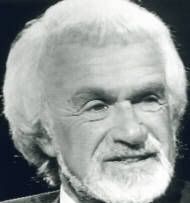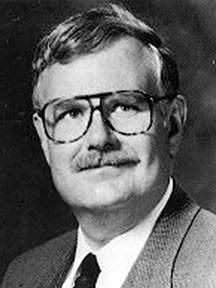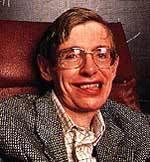PARALLEL UNIVERSE SPLIT
Keep in mind that this is an objective consideration of theory. I'm on a "different side" of a lot of this article. You may want to read my site on TIMETRAVEL (TIME TRAVEL) which can be accessed at the sidebar on the right.
 My So-Called UniverseOur cozy world is probably much bigger—and stranger—than we know. By Jim HoltOne morning last April, the New York Times op-ed page ran a piece by the Australian physicist Paul Davies warning readers not to be so gullible as to believe there could be more than one universe. The next month, Scientific American published a long article by the physicist Max Tegmark asserting that, to the contrary, parallel universes almost certainly do exist. Around the same time, bookstores received Are Universes Thicker Than Blackberries?, wherein Martin Gardner dismisses theories of multiple universes as "frivolous fantasies." If you had seen all this, you may well have asked yourself: Is this really a matter on which I need to form an opinion? Before getting to why you should or should not believe in multiple universes, there's a semantic point we ought to deal with. If the universe is, as the dictionary has it, "all existing things ... regarded as a whole," then isn't it true by definition that there is only one such thing? (After all, uni- is built right into the word itself.) Well, yes. But when physicists and philosophers talk about different space-time domains being "two universes," what they generally mean is that those regions are 1) very, very large; 2) "causally isolated" from each other (meaning that an event in one cannot have an effect in another); and hence 3) mutually unknowable by direct observation (since observing something means causally interacting with it). The case for saying the two domains are separate universes is further strengthened if 4) they have very different characters: if, say, one of them has three spatial dimensions (like ours), whereas the other has 17 dimensions. Finally—and here is the existentially titillating possibility—two domains might be called separate universes if 5) they are "parallel," meaning that they contain somewhat different versions of the same entities, like your own alter ego. Thinkers who entertain the possibility that there are lots of universes have invented a new term for the entire ensemble: "the multiverse." Why believe in the multiverse? The "pro" camp has essentially two kinds of arguments. One—the good kind—is that the existence of other universes is logically implied by the theories that best explain features of our own universe. For instance, measurements of the cosmic background radiation (the echo left over from the big bang) indicate that the space we live in is infinite and that matter is spread randomly throughout it. Therefore, all possible arrangements of matter must exist out there somewhere—including exact and inexact replicas of our own world and the beings in it. The idea is a bit like that of monkeys in front of typewriters eventually typing out all of Shakespeare: Quantum theory says that nature is discrete, so the visible universe we inhabit is characterized by a finite amount of information; if space is infinite, this informational pattern is bound to repeat at vast enough distances. A back-of-the-envelope calculation shows that there should be an exact copy of you around 10 to the 10 to the 28th light-years away. A more extravagant kind of multiverse is entailed by the theory of "chaotic inflation." Proposed by Andrei Linde to explain why our universe looks the way it does—big, uniform, and flat—inflation theory also predicts that big bangs should be a fairly routine occurrence, giving rise to an eternal network of universes tied together by impassable "wormholes." These universes, according to the theory, would have different physical characteristics. This kind of multiverse has become the bane of natural theologians. Here's why. One reason for believing in God is that our own universe seems improbably fine-tuned for life. It's as though a cosmic designer had carefully adjusted the physical laws to ensure that beings like us would eventually shimmer onto the scene. But if our universe is one among a vast ensemble of universes with randomly varying physical constants, then it is only to be expected that a few of these universes should be life-fostering. Add to this the fact that if we exist at all, we are bound to find ourselves in a universe that is congenial to us—the so-called "anthropic principle"—and the presumed fine-tuning of our universe seems wholly unremarkable. No need to invoke the God hypothesis to answer the question, why are we here? But some thinkers want to turn this reasoning around. They insist that other universes must exist precisely to make certain conceptual mysteries go away. This is the second kind of argument for the multiverse—the bad kind, since it has nothing to do with empirical observation. One version of this argument derives from attempts to make sense of quantum theory. Take the famous paradox of Schrödinger's Cat—the unfortunate feline, who, because of the quantum superposition of possibilities, is simultaneously alive and dead. According to the "many-worlds" interpretation of quantum theory, Schrödinger's experiment splits the universe into two parallel copies, one with a live cat, the other with a dead one (and each with a version of you). Physicists who buy into this interpretation—and many distinguished ones do—claim that each universe splits into something like 10 to the 100th copies every second, all of them equally real. Yet, since quantum theory forbids these parallel worlds from interacting, there is no experimental way to confirm their reality. Another version of this backward argument for multiple universes was championed by the late Princeton philosopher David K. Lewis. Lewis believed (or at least pretended to) that all logically possible universes are as real as the one we call the "actual" one. Why? Because their existence would neatly solve a wide range of philosophical problems. Take the problem of counterfactuals. What does it mean to say, "If JFK hadn't gone to Dallas, the Vietnam War would have ended earlier"? According to Lewis, the counterfactual statement is true only if there is an alternative universe in which JFK didn't go to Dallas and the Vietnam War did end earlier. His "modal realism" entails that there is even a universe containing the Greek gods and is primarily a linguistic philosophical argument rather than a scientific one. As for the arguments against the multiverse, they boil down to these three. 1) It's not science. Both Paul Davies and Martin Gardner claim that the proposition "the multiverse exists" has no empirical content and hence amounts to empty metaphysics. But the hypotheses that imply it do lead to testable predictions, some of which jibe with the evidence collected so far. In the next decade, as Max Tegmark points out, improved measurements of the microwave background radiation and of the large-scale distribution of matter may fortify or knock down two pillars of the multiverse: the infinitude of space and the theory of chaotic inflation. 2) Alternative universes should be shaved away by Occam's Razor. Both Davies and Gardner complain that the multiverse notion is too extravagant. "Surely the conjecture that there is just one universe and its Creator is infinitely simpler and easier to believe than that there are countless billions upon billions of worlds," Gardner writes. Is it? Our universe came into being with the big bang, and (as the Canadian philosopher John Leslie has observed) it would be exceedingly odd if the mechanism behind this event bore the label "THIS MECHANISM OPERATED ONLY ONCE." A computer program that prints out the entire sequence of numbers is much simpler than one that prints out only a single number of any length. And besides, why should simple theories be more probable than extravagant ones? 3) The multiverse, if real, would reduce our own world to a Matrix-like simulation. This objection, voiced by Davies, is surely the most bizarre of the lot. If there really were myriad universes, Davies argues, then some would contain advanced technological civilizations that could use computers to simulate consciousness and create endless virtual worlds. So, he continues, taking the multiverse theory at face value means "there is no reason to expect our world—the one in which you are reading this right now—to be real as opposed to a simulation." This is a terrible argument for at least two reasons. If it were valid, it would rule out technologically advanced civilizations in this universe since they, too, would presumably create such simulations. And the hypothesis that we are living in a simulation itself has no empirical content. We cannot even talk about it coherently, as Hilary Putnam has pointed out, since our words could refer only to things "inside" the alleged simulation. How seriously should you take multiple universes? That depends on how scrupulous you are about your ontological commitments. I know people who still regard atoms as theoretical fictions. I have friends who claim to doubt the reality of the past, of the future, of other minds. I have heard of academics—though I cannot believe they actually exist—who think that the cosmos is a social construction. But I am a robust scientific realist. If an empirically sound theory entails that unobservable entities exist, then I take them at face value. After all, reality has over and over again turned out to be much more inclusive than we've given it credit for being. Just a century ago, our puny Milky Way was thought to comprise the entire cosmos. If the choices we make in our everyday lives seem a little absurd from the viewpoint of a single vast and eternal universe, then, from the viewpoint of an infinite ensemble of universes containing infinite copies of ourselves, all making every possible choice, they are absolutely absurd. Thankfully, in our own little world, those choices remain terribly meaningful and important. |

















<< Home